Experimental
Probability of drawing a 2 (as a percent)
7%
the probability of rolling a 2 (give answer as a fraction)
1/6
the ratio of the number of ways an event can occur to the total number of equally likely outcomes
Theoretical Probability
There are 3 blue, 2 green and 4 yellow tiles in a dish. If I draw one and do not replace it, then draw another what is the probability of drawing two blues.
3/9 then 2/8 so P(b,b)= 1/12
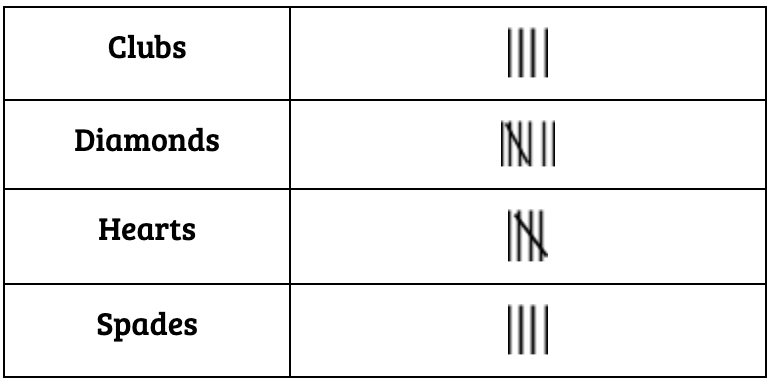
Mr. Barker found the probability of drawing a spade to be 1/5 or 20%. Did he find the theoretical or experimental probability?
Experimental Probability
Given a 4 color spinner with equal parts (red, blue, yellow, green) what is the probability of spinning red?
1/4 or 25%
Probability of drawing the Queen of Hearts?
1/52
Probability of an even number or a 1
(give as a percent)
67%
Events that have no influence on each other
Independent
There are 3 blue, 2 green and 4 yellow tiles in a dish. If I draw one and do not replace it, then draw another what is the probability of drawing a blue then green
3/9 then 2/8 so P(b,g)= 1/12
Probability of flipping heads twice in a row (as a fraction)
1/4
You have a bag of marbles, four red and five green. What is the probability of choosing red?
(4/9) or 44%
Probability of drawing a 2,3 or 4 (as a fraction)
3/13
Probability of rolling an 8 on a single die
0
The ratio of actual outcomes to the total number of possible outcomes in repeated trials
Experimental Probability
There are 3 blue, 2 green and 4 yellow tiles in a dish. If I draw one and do not replace it, then draw another what is the probability of drawing bluethen yellow.
3/9 then 4/8 so 12/72 or P(b,y)=1/6
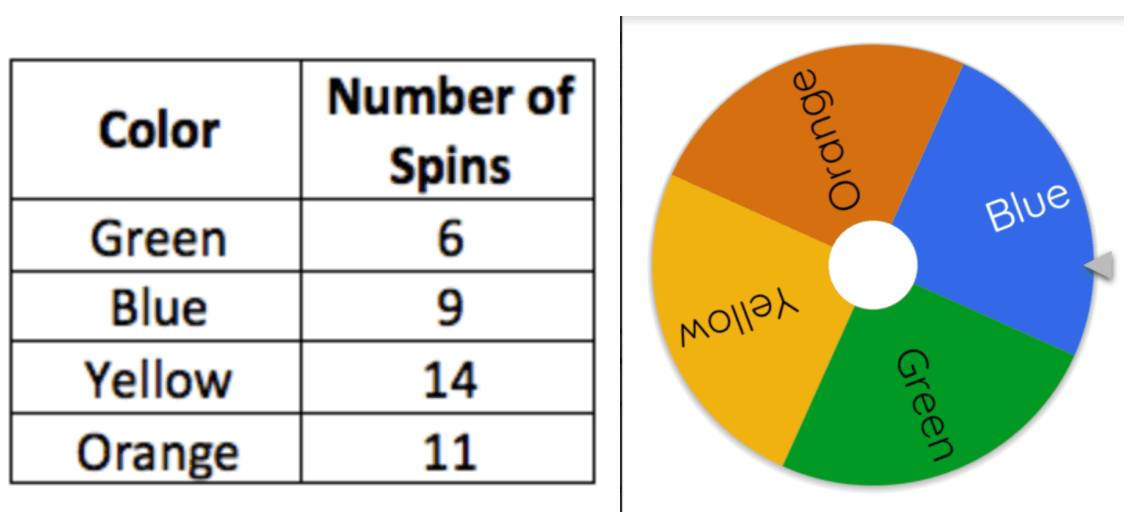
What is the theoretical probability of landing on green or blue?
1/2 or 50%
Given a 4 color spinner with equal parts (red, blue, yellow, green), the probability of spinning red then blue (as a fraction)
1/16
Probability of pulling any 4 OR a heart (as a fraction)
4/13
probability of rolling a 5, then a 2 (as a fraction)
1/36
The second event is influenced by the first event
Dependent
If I am making a sandwich and have the options of wheat, white, sourdough, or rye for bread. Meat choices are ham, turkey, or tuna. Draw a tree or area model to represent all options available.
Will Draw on Board!
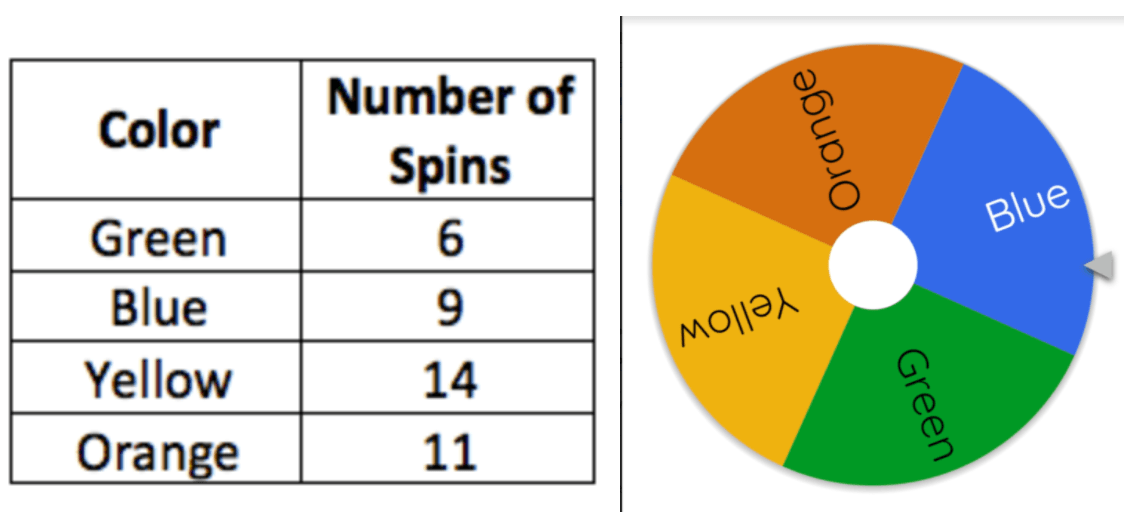
What is the experimental probability of landing on green or blue?
3/8 or 38%
the theoretical probability of rolling a one THEN picking a red card out of a deck of cards
1/12 or 8%
1/6 * 1/2 (half of cards are red so 1/2)
Out of 250 draws of a standard deck of cards what is the probability of drawing an ace.
4/52 = x/250 x=19.2 so P(ace)=about 19
the probability of rolling a six then a number less than 3 (as a fraction)
1/18
what we expect to happen mathematically
Theoretical probability
If I am making a sandwich and have the options of wheat, white, sourdough, or rye for bread. Meat choices are ham, turkey, or tuna. What is the probability someone will have a turkey sandwich.
P(turkey)= 4/12 or 1/3
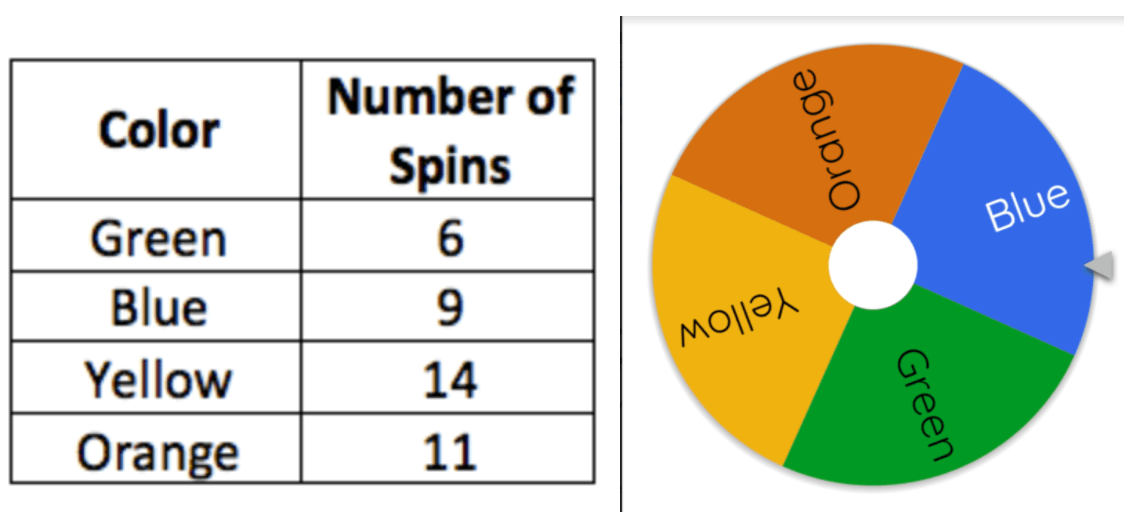
What is the theoretical probability of not landing on green?
3/4 or 75%
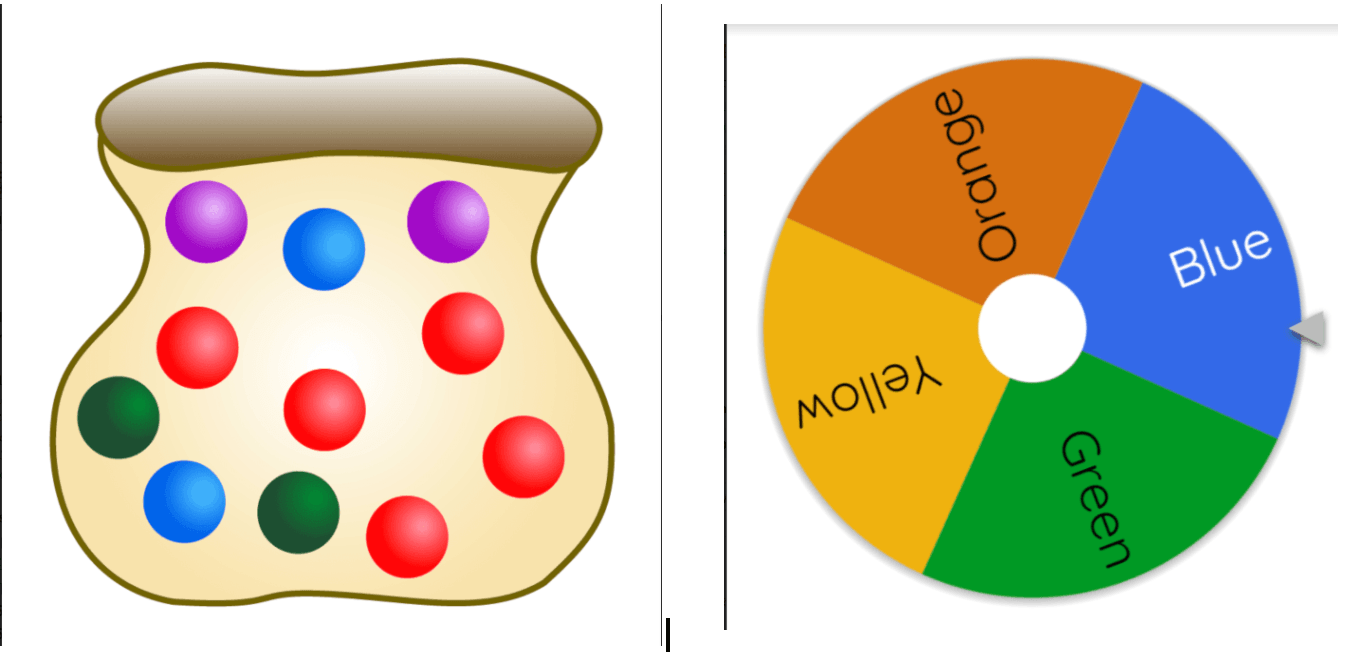 What is the theoretical probability of picking a purple marble out of 100 draws.
What is the theoretical probability of picking a purple marble out of 100 draws.
2/11=x/100 x=about 18
Probability of not an ace (as a percent)
92%
When rolling two dice, the probability that the sum is NOT 12. (as a fraction)
(Recall, there are 36 possible ways to roll 2 dice.)
35/36
After repeated trials the experimental probability should get _________ to the theoretical probability
closer
If I am making a sandwich and have the options of wheat, white, sourdough, or rye for bread. Meat choices are ham, turkey, or tuna. What is the complimentary probability of not a turkey.
P(not a turkey)= 8/12 or 2/3
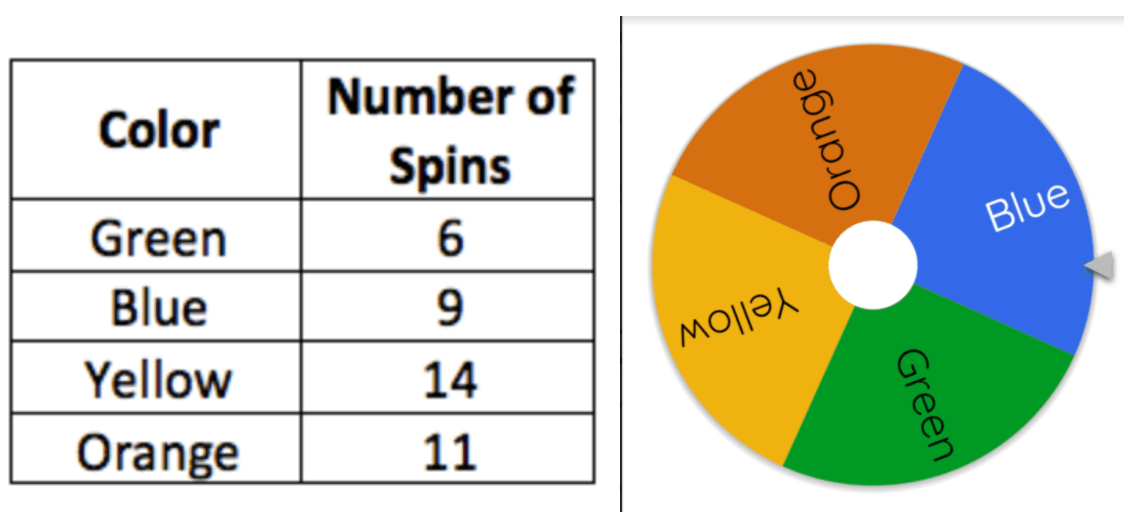
What is the experimental probability of not landing on green?
17/20 or 85%
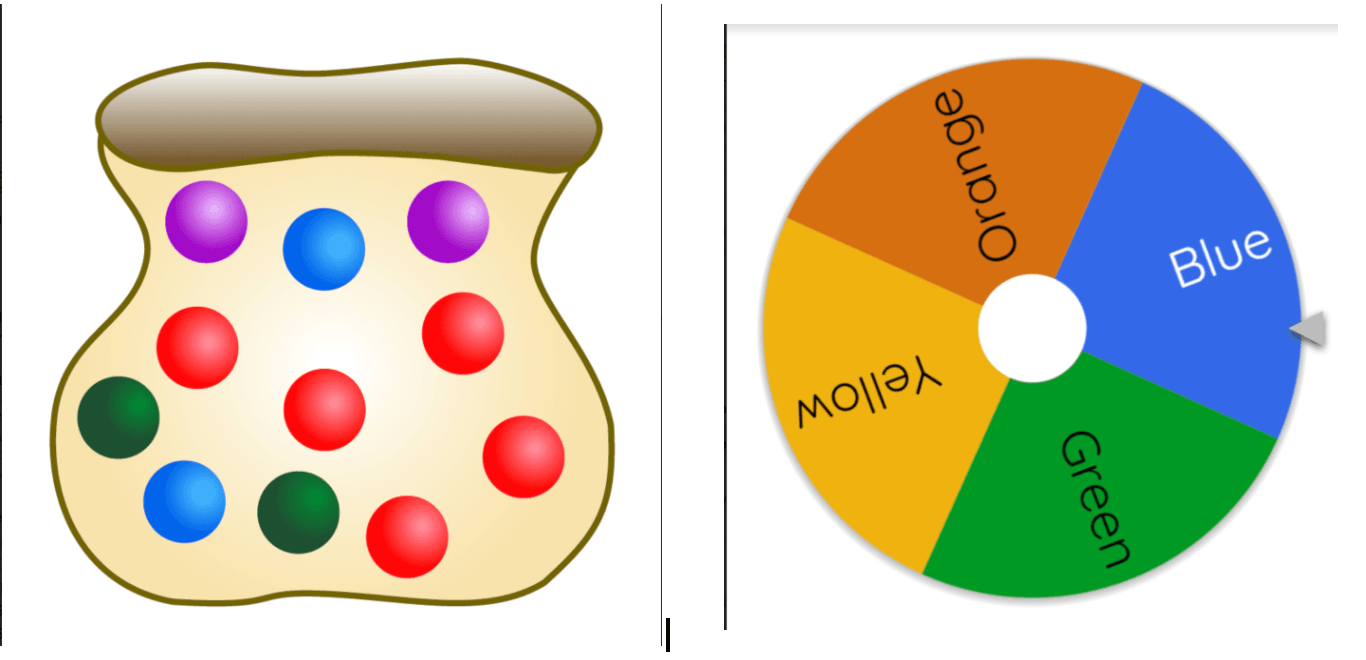
What is the probability drawing a red marble out of 150 draws.
5/11=x/150 x=about 68 times.